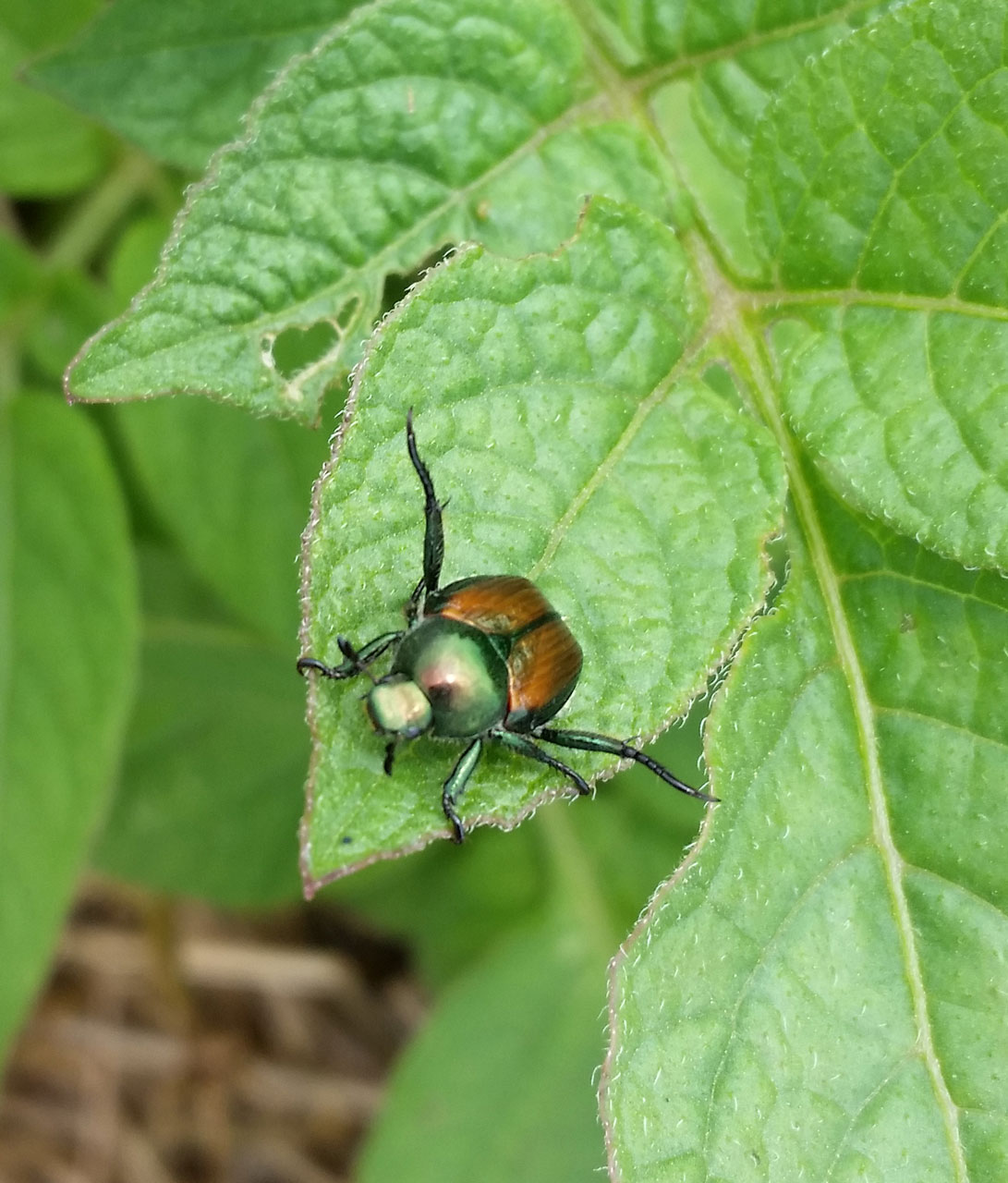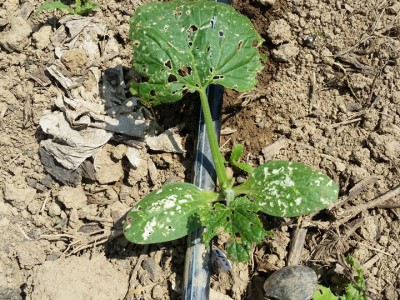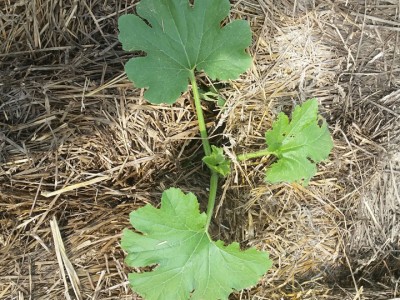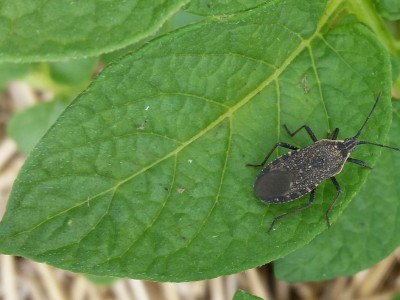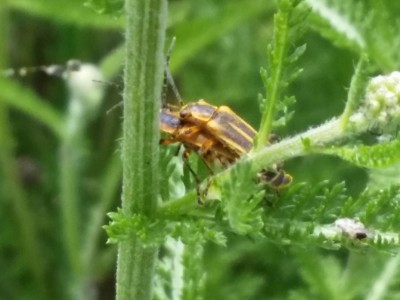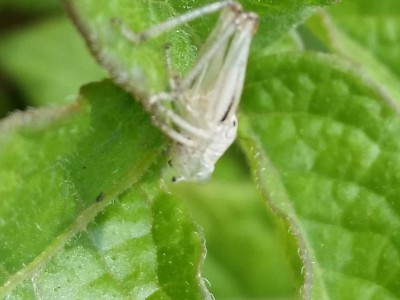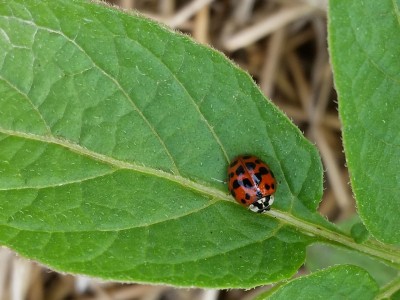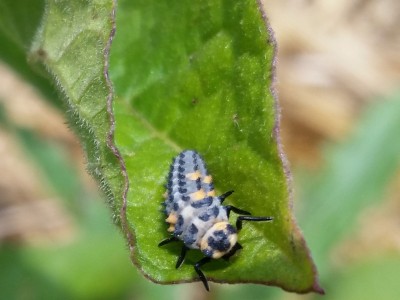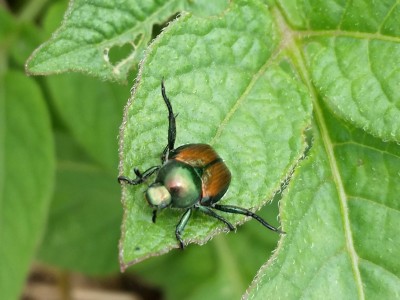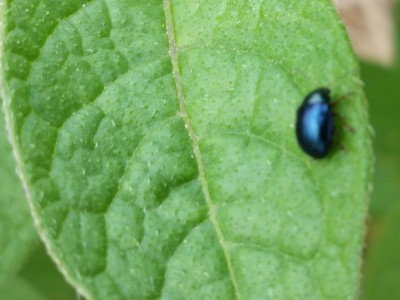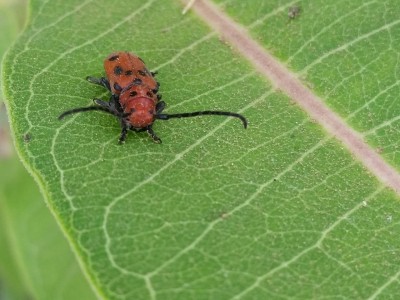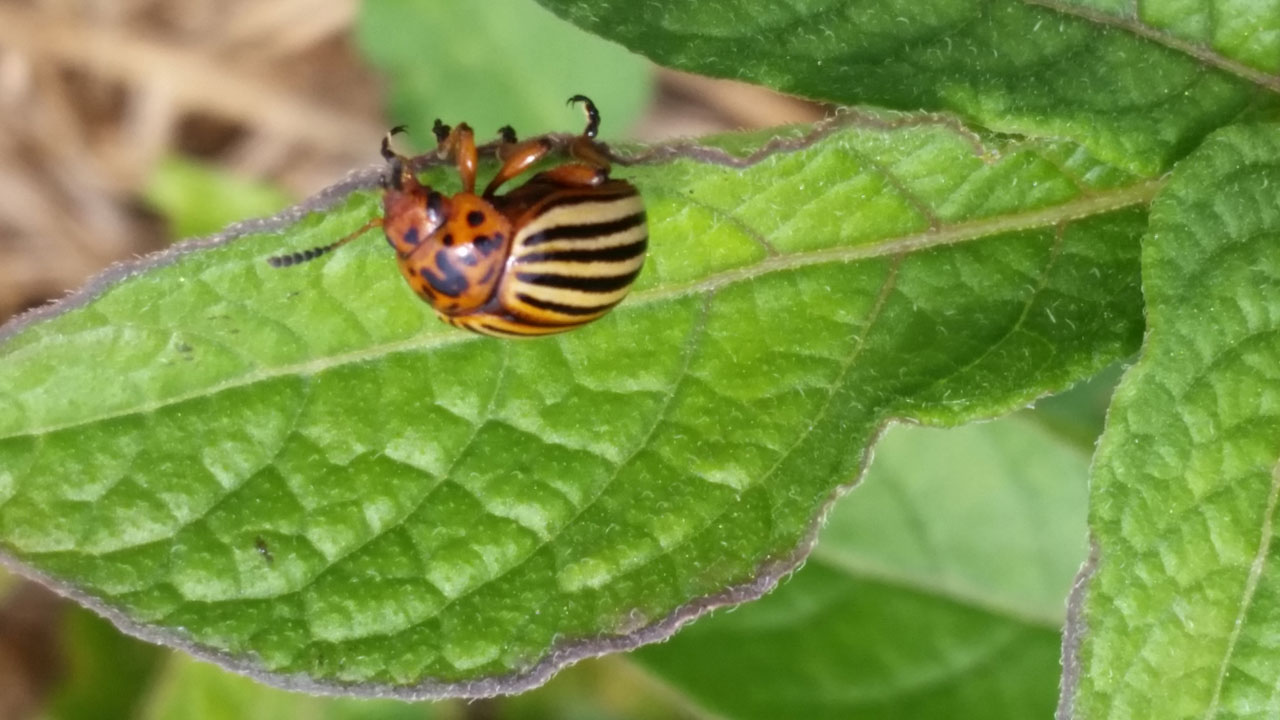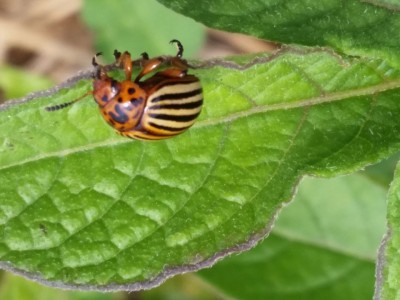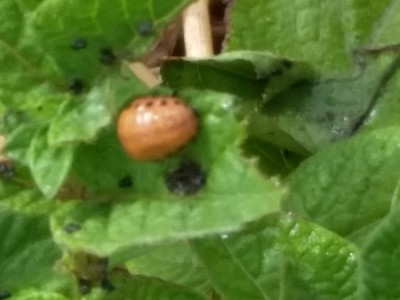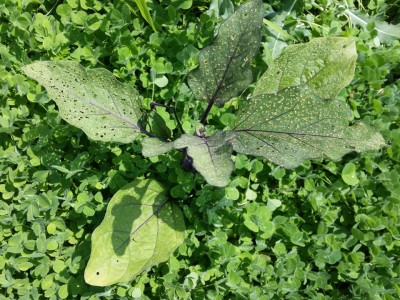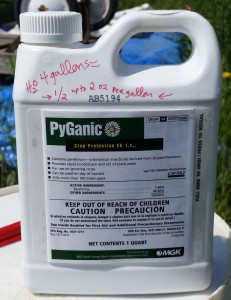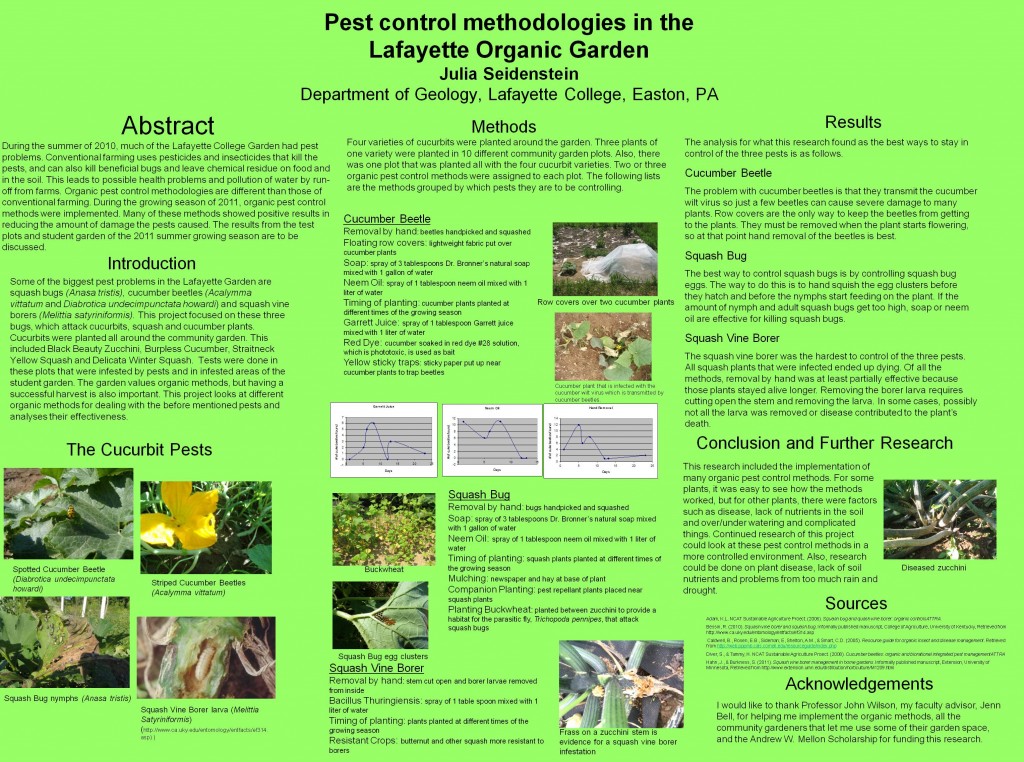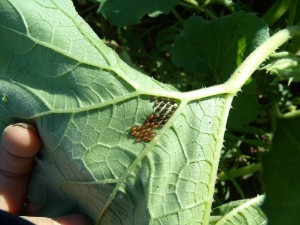So last week I mentioned how as organic farmers we’re always compromising. Specifically, we do our best to control pests without having to even use organic pesticide but when a good deal of our farm was at risk we bit the bullet and sprayed some PyGanic on the affected crops. To our great joy, this week we discovered that after only the one spray we were able to save our squash crop and eliminate the vast majority of the Colorado Potato Beetles on the farm (with mostly spot spraying damaged plants rather than spraying entire crops), without killing off all our wonderful beneficial insects. In other words, the best case scenario! Given this, we most likely won’t have to spray anything for the rest of the summer. Take a look at the difference in our squash plants. Before, they were struggling to survive through the assault of a beetle known as the squash or cucumber beetle, and now they’re thriving!
- June 30th
- July 10th
Now, there are so many insects on a farm that only an entomologist would be able to identify them all without years of working outside and learning bit by bit. So I’ll show some of the more common insects on the farm for you here:
- This is the evil squash bug, a large gray beetle which feeds on squash plants. Watch out though, there is a look alike with pointed shoulders that actually feeds on bugs like this. Look before you squish!
- This little orange and black beetle is a lightning bug (also known as the firefly.) Lampyridae are both pretty and beneficial!
- This white grasshopper-imitator is known as a leaf hopper, and they are harmful pests that will eat leaves. In fact, the whole family of grasshoppers are essentially locusts you don’t want around.
- A round ladybug. Their longer name is Ladybird Beetles, the various members of this species are carnivorous, feeding on aphids and other awful bugs you don’t want. Great to have around!
- Another Ladybug Larva. As they age, their colors change until they pupate and morph into their adult form.
- A Japanese Beetle. These neon green and brown bugs are invasive (as their name might suggest) and are harmful pests.
- This shiny black little one is a flea beetle. They’re a big cause of damage as they will eat a plant until it can’t recover! They don’t like the heat, but they arrive on the farm before anything carnivorous, making them an awful infestation to deal with.
- This is known as the 12 spotted lady bug, and is beneficial like all lady bugs
I don’t want to end talking about bugs though, so I’ll talk more about payoffs. There are three other excel scholars, Andrew Goldberg, Alexa Gatti and Rachel Leister who have a plot out at the farm, and they’re specifically working toward making vegetables in the community more accessible through their veggie van project, where they bring fresh vegetables to residents of Easton at no charge, with donations accepted. The first run of this took place just this Thursday from 5-7 at Pine and 10th street, and they will be doing this each Thursday at these times for the rest of the summer. Community gardeners who would like to support them can donate food by leaving it in the cooler by the shed at LaFarm.
-Joe Ingrao, Excel Scholar Summer 2014
